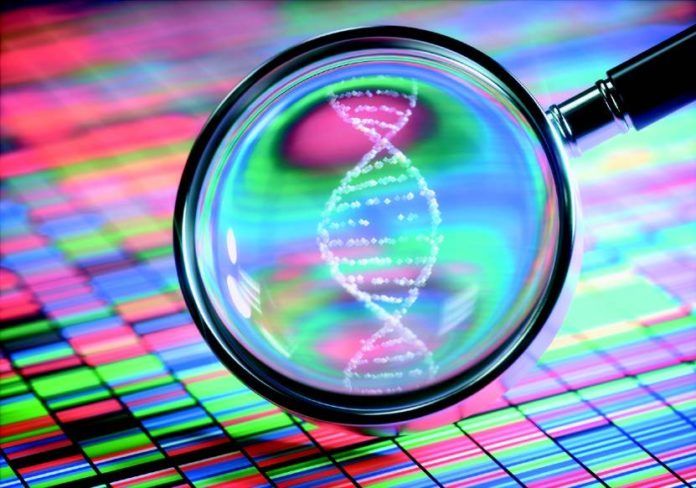There is evidence that people respond differently to foods or nutrients depending on genetics and other factors, such as the make-up of their gut microbiome. While dietary guidance, such as the Dietary Guidelines for Americans, is designed as a public health tool to impact the health of the population as a whole, the frontier of nutrition science brings us the concept that dietary advice can be adjusted to take individual biological differences into account. “Personalized nutrition is an approach that provides targeted nutritional advice to an individual based on information specific to that person,” says Jos Ordovs, PhD, director of the Nutrition and Genomics Laboratory and a professor at the Friedman School of Nutrition Science and Policy. “Advances in science will increase the odds that a particular dietary pattern is successful for a particular individual.”
Known Variables: Many variables shape an individual’s dietary choices. To begin with, we all have different tastes and preferences. Dietary recommendations should also be tailored to life stage, health, and objectives (such as weight loss or blood sugar control). A growing child has different nutrient needs than a pregnant woman or an older adult. Someone trying to lose weight would take a different dietary approach than someone trying to gain weight. People who have a food allergy or intolerance must make different choices than people without these conditions. Food environment and socio-economic conditions are also factors. Additionally, the bioavailability of nutrients changes with age. For example, some older adults do not absorb vitamin B12 as well as younger adults or are less able to make vitamin D when exposed to sunlight. Dietary advice can be personalized to take all of these variables into account.
A healthy dietary pattern is one that supplies all necessary nutrients (and few things that are unnecessary) without exceeding calorie needs. “Given the many dietary patterns globally that have resulted in good health outcomes, it should not be difficult to formulate a dietary pattern that takes all the variables into consideration,” says Alice H. Lichtenstein, DSc, director of the Cardiovascular Nutrition Laboratory and executive editor of Tufts Health & Nutrition Letter.
The Genetic Factor: Our genes influence absorption, transportation, and metabolization of every nutrient we consume. “When two people are exposed to the same diet, their responses can be different,” says Ordovs. Under the same dietary interventions, some people will lose more weight than others, for example. “If we can identify the genetic fingerprint that characterizes why people respond one way or another,” says Ordovs, “we can apply that information to improve long-term health or increase success in reaching particular goals.” There is evidence, for example, that a particular gene variant increases the association between saturated fat intake and obesity, so lowering saturated fat intake could have a proportionally larger impact on weight loss success for individuals with this genetic trait.
The Microbiome: Trillions of microbes live in the human digestive tract, and scientists are just beginning to understand how these organisms interact with our bodies and the foods and beverages we consume. A look at your microbiome may someday be able to help determine your risk for cancer or obesity, and specific changes to your diet could be prescribed to help treat cardiovascular disease by modulating your microbiome. “Once we identify the microbiota fingerprint that is associated with a particular metabolic response, we will be able to classify individuals according to their microbiota and recommend a diet best for reducing disease risk for that profile,” says Ordovs. Inversely, says Lichtenstein, “diet may be able to someday modify a person’s microbiome to improve health outcomes.”
Dealing with Change: Even when testing can identify particular genes or gut bacteria patterns that impact how we metabolize food, we will still have the hard work of behavior change ahead of us. “It is hoped that personalized nutrition could impact behavior change positively,” says Ordovs. “People may be more motivated to change when they are certain something is really good for them.” In order to investigating the efficacy of personalized nutrition, a study published in the International Journal of Epidemiology in 2017 as part of the Food4Me study delivered an internet-based intervention to over 1600 adults in seven European countries for six months. This randomized controlled trial found that personalized dietary advice did in fact motivate consumers to eat a healthier diet and follow a healthier lifestyle in comparison with conventional dietary advice. However, the Food4Me study found no evidence that personalization based on genetic testing provided any additional benefit over advice based simply on analysis of current diet.
“In addition to looking at the genetics of appetite and metabolism, looking at behavioral traits and the genetics of behavior can also be a part of personalized nutrition,” says Ordovs. “For example, emotional eaters may have more difficulty following dietary advice and additional approaches may be necessary to reach success.”

Hype and Promises: The field of personalizing nutrition based on genetic or microbiome testing is still in its infancy. “In terms of commercializing the concept of personalized nutrition, things got off to a rocky start,” says Ordovs. “There were some companies that overpromised, but things have gotten better. The state of the science is growing all the time, and the degree to which diets can be personalized will continue to improve.”
We are still a long way from fully understanding the complex relationships between an individual’s food consumption and their biological makeup, so expensive genetic testing may not be worth the cost at this time. “What needs to happen next is we need to select people with certain genetic predispositions and see how they respond to a particular diet compared to their peers who do not have that predisposition,” says Ordovs. “This type of intervention study is the way we will know if personalized nutrition is more successful at achieving the desired outcomes (such as weight loss, improved lipid profile, lower blood pressure, or better glucose control) than the traditional one-size-fits-all recommendations.”
Even when we reach this level of precision nutrition, there will still be hurdles to be addressed. “We have to figure out how to integrate the fact that we are social animals,” says Ordovs. “How do you prepare a family dinner if everyone is following a slightly different diet?” There is also the issue of cost. Tests can be expensive, meaning they will only be available to one segment of the population. “In the future, personalized nutrition programs may provide meal plans, recipes, and even foods to make it easier to follow recommendations, although this type of expensive solution will not be possible for everyone,” says Ordovs.
Despite these hurdles, the concept of personalized nutrition could hold some promise for fine-tuning the impact of a healthy dietary pattern. “You don’t need a genetic test to tell you to eat more fruits and vegetables, but if you are trying to make changes and want guidance to do better, it may be helpful,” says Ordovs. “Results of a genetic test are not going to fix everything, and there are no magic foods, beverages, or supplements. It’s still about the hard work of changing habits and behaviors. But if you find out, for example, that your cholesterol levels are particularly responsive to changes in saturated fat intake, that might just be the motivation you need to get started.”

If you are interested in the field of personalized nutrition, knowing these terms may be helpful:
-Gene: A section of genetic material passed from parents to child that determines many characteristics of that child. It is estimated humans have between 19,000 and 20,000 genes.
-Microbiome: Bacteria and other microbes that live in the human body. For food and nutrition the most important ones inhabit the gut.
-Genotype: An individual’s complete set of genes.
-Phenotype: The observable characteristics of an individual that result from their genetic make-up.
-Epigenetics: Effect of the environment on gene expression.
-Nutrigenomics: Effect of nutrients on gene expression and how this impacts our health.
Try these tips to personalize your nutrition plan:
-Tailor general dietary recommendations to your own personal preferences and health needs. (Find a registered dietitian at EatRight.org if you need help.)
-Don’t be fooled by personalized nutrition companies with promises that seem too good to be true. Keep your expectations realistic.
-If you decide to invest in a personalized nutrition program, be sure to work with a healthcare professional.
-Don’t expect a quick fix, even with a personalized plan. Remember that behavior change is difficult and the benefits are unlikely to be reaped unless adhered to over long periods of time.






















I eat a whole food plant based diet. I eat as much as I want and keep a BMI of 23-24. At 71, I surf, play singles tennis, and hike. The only supplements I take are B12 and Vitamin D. Every day of my life I read research based articles on nutrition and really try to balance my nutrition with whole unprocessed food. It takes effort. As an MD myself, I have seen people fail repeatedly with unrealistic diets. This motivated me to change myself as well as use reliable nutritionists to educate my patients to prevent and treat disease with diet and lifestyle modification before resorting to medication but it s very hard with the amount of brainwashing on all media: fad diets and junk food.
This article was encouraging because I am definitely having trouble losing weight. I do not understand why because I eat fruits, vegetables, no processed foods or even red meat. My blood numbers are perfect. I am 75 years old and still working 3 jobs so I am reasonably active. Do you think that a personal nutrition program could help me? I also keep track and write down my carbs and calories each day and keep them in a low range. I am 5′ 1/2″ and weigh 168 pounds with most of my weight around the middle. Please tell me your opinion. Is it worth investing in a personalized plan? Thank You and God Bless You. Maria Mobley